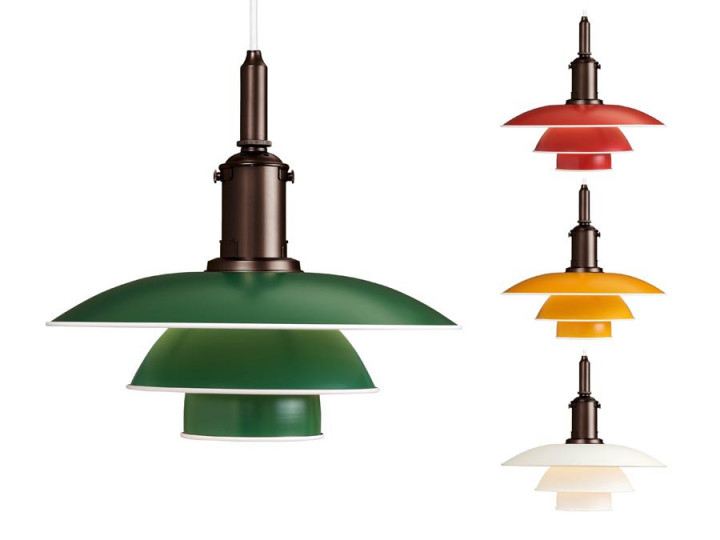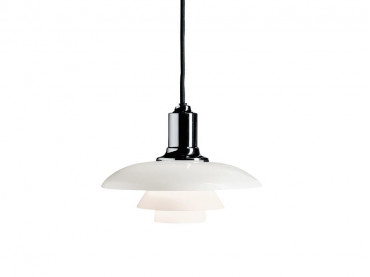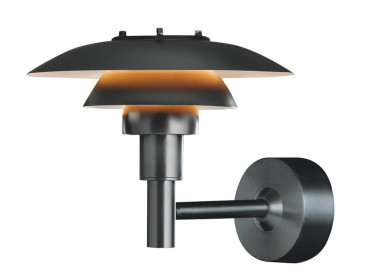Mid-Century modern scandinavian table lamp PH 31⁄2-3 aluminium by Poul Henningsen for Louis Poulsen.
-
Poul Henningsen
-
Louis Poulsen
- LP023 Delivery time 1 / 2 weeks
Mid-Century modern scandinavian table lamp PH 31⁄2-3 aluminium by Poul Henningsen for Louis Poulsen. *Required step
In order to help you to choose, and to receive samples, do not hesitate to contact us by email: contact@galerie-mobler.com or by phone: 01 43 33 20 12
Mid-Century modern scandinavian table lamp PH 31⁄2-3 aluminium by Poul Henningsen for Louis Poulsen. New product, created in 1926 and still produced by same editor. The fixture is 100% glare-free, with a design based on the principle of a reflective three-shade system, which directs most of the light downwards. The shades are made of deepdrawn aluminium with white inner surface that ensures gentle, downward light distribution. The downward light is both soft and pleasant.
Light source : E27, 100W.
| Year | 1926 |
| Dimensions | H : 30,7 cm. Shade Ø : 33 cm. Cable length : 3 m. Weight : 1,3 kg |
| Material | Top shade: Spun aluminium. Other shades: Mouth-blown white opal glass. Finish: Red, green, yellow and white, powder coated. |
| Style | Classique Neuf |
| Origin | Denmark |
| Fournisseur | Louis Poulsen |
Poul Henningsen
Denmark (1894-1967)
Danish architect Poul Henningsen, known by his initials, PH was obsessed with light. He is the legendary creator of the lighting series carrying his name. He can be said to be the worlds first lighting architect.
Poul Henningsen devoted his entire career to investigating the importance of light for our well being. He worked on the theory that the observer should not be subjected to direct glare from the electric light source. Henningsen used a series of layered shades to both spread the light and conceal the light bulb, thus creating a softer more diffused lighting. One of Denmark's major figures in 20th-century lighting design, Henningsen was also an independent architect, designer of theatre interiors and tubular steel furniture, critic, and editor of the magazine Kritisk Revy (Critical Review). Highly critical of the widespread lack of imagination in domestic lighting in Copenhagen, Henningsen came to prominence with the first of his multi-shade lamps designed in 1924, setting the pattern for his subsequent lighting work. Known as the Paris Lamp (and later as the PH lamp) it won a competition for a light fitting for the Paris Exposition des Arts Décoratifs et Industriels of 1925, where he was awarded a Gold Medal, and was put into production by the Danish lighting manufacturer Louis Poulsen.
Henningsen's design principles were based on the scientific analysis of the ways in which lampshades distribute light, glare, and reflection. The PH lampshades were composed of a series of separate, interleaved elements that gently diffused the light throughout the space in which it was situated as well as directing it downwards





















